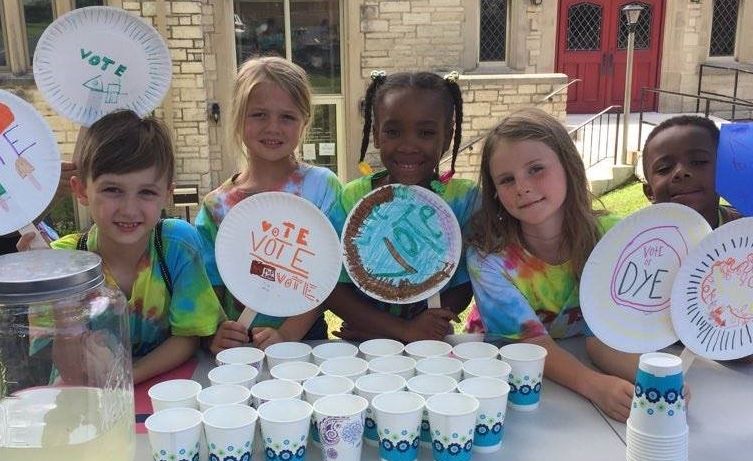
Civic Engagement is Making Change for Children | July 2020 Newsletter
We pray and hope that you are well. Although the first six months of 2020 have been challenging, the last six months are filled with opportunity. A glimpse of the potential for the rest of this year was fulfilled on July 17th when a two and a half year campaign to close the city of Saint Louis’ Medium Security Institution (also known as the Workhouse) was successful in passing legislation to that end.
Deaconess is pleased to have supported the Close the Workhouse Campaign with funding through our Responsive Grants program, space as a Center-Based Initiative and our voice as an institutional advocate. We continue to learn from the campaign’s leaders (Action St. Louis, ArchCity Defenders and The Bail Project) and its lessons for our community.
The most significant lesson this campaign has illuminated is that sustained public education, followed by mobilization and democratic action can generate, allocate and reallocate public resources for the benefit of children and families. With this success in mind, we are affirmed in our commitment to invest in the power of people in communities to advocate, organize and mobilize for change.
Now, we turn our attention to upcoming elections in August and November where our Partners across the region are deeply engaged in efforts which will impact children and families. This newsletter spotlights some (but not nearly all) of these efforts. We encourage you to connect with Deaconess Partners to learn about issues, volunteer and share good information with your neighbors. Then, get out and vote.
Through the elections on August 4th, we will be working with our Partners to expand Medicaid in the state of Missouri by encouraging citizens to Vote Yes on Amendment 2.
In the November election, we will be working to protect a 2018 win which made government more accountable through the CLEAN Missouri campaign by encouraging people to Vote No on Amendment 3. We will also be working with Partners in the city of St. Louis to assure the passage of an effort to increase funds available to the St. Louis Mental Health Board to invest in early childhood education.
We hope we can count on you to vote as a voice for our children on these key issues. Also vote with them in mind as you choose candidates to serve in office.
For our children,
Rev. Dr. Starsky Wilson
President & CEO
Deaconess Foundation
Partner Spotlight: Missouri Jobs with Justice
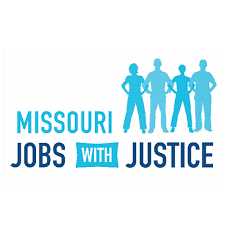
Missouri Jobs with Justice’s (JwJ) mission is to organize Missourians to build transformative power for social, racial, and economic justice in our state. JwJ believes that strong relationships rooted in justice, equity and solidarity are necessary for building transformative power for social, racial, and economic justice. Their vision is of a Missouri where: the economy and public infrastructure are strong and good jobs are plentiful; the right of all workers to organize and collectively bargain is protected; opportunity exists for all regardless of race, identity, or immigration status; All are assured economic security and a safe, healthy life from the cradle to the grave; and white supremacy is understood, challenged, and dismantled.
With offices in St. Louis, Springfield and Kansas City, Jobs with Justice is part of national Jobs with Justice and People’s Action networks, and will participate in nationally coordinated activities and support like-minded local coalitions in other parts of the country when called to do so.
Deaconess Foundation provides multi-year funding through its Responsive Grant and Special Public Policy Grant to Missouri Jobs with Justice. The Public Policy Grant supports the Campaign to Achieve Medicaid Expansion and Democracy Reform. In collaboration with Action St. Louis, the collaborative works to deepen public knowledge about health care disparities, organize and mobilize impacted residents to play an active role in changing health care policy by expanding Medicaid health care coverage and access to voting in Missouri. It is part of a broader statewide grassroots coalition that gathered more than 42,000 signatures to ensure that Medicaid ballot measure would be placed before every Missouri voter this year.
From the Foundation: Vote Yes on Amendment 2
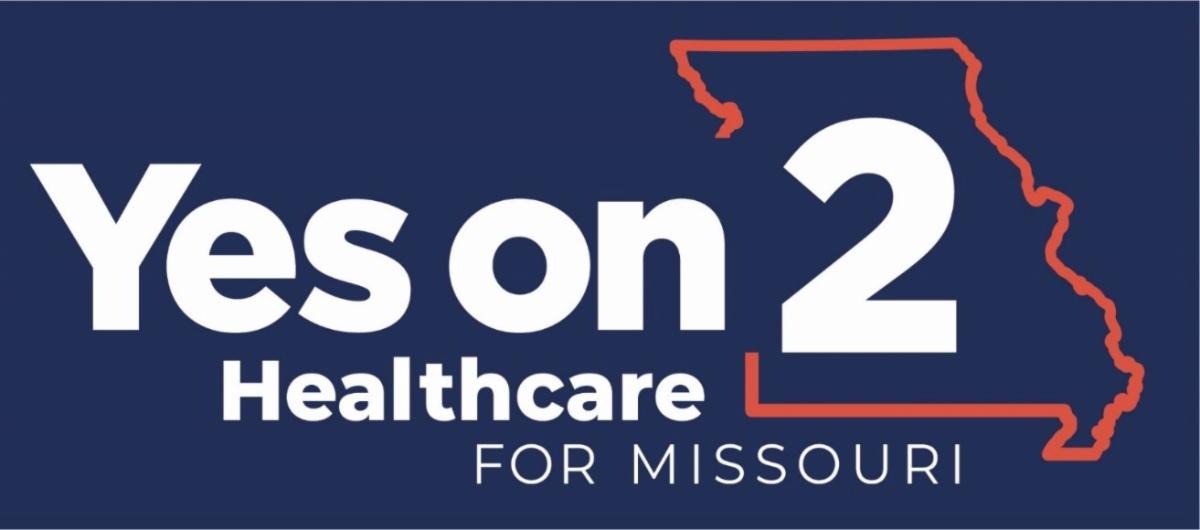
Since the adoption of our four-pronged, youth-centered public policy agenda, Deaconess has been an active advocate for Medicaid expansion. Medicaid expansion provides a health insurance option for individuals with no or limited access to employer-based health insurance coverage and those unable to afford current health insurance options because of low wages. That means, in Missouri, more than 230,000 currently uninsured individuals would have access to health insurance coverage by broadening Medicaid eligibility to include individuals earning $18,000 or less annually.
Under current requirements, adults without children don’t qualify, while parents in a family of four must earn less than $5,550 per year to qualify for Medicaid. The vast majority of Missourians (71%) who would qualify for expanded Medicaid eligibility are in families with at least one full-time worker.[1]
Missouri faced a health care crisis long before COVID-19. However, the coronavirus outbreak exacerbated the crisis.
Prior to the pandemic, 600,000 Missourians were without health insurance coverage, and at the time, the uninsured rate for White people was 10% compared to 15% and 23% for Black and Hispanic/Latino Missourians, respectively.[2] Since March more than 500,000 Missourians have filed unemployment claims because of layoffs and reduced hours, leaving many more without health insurance, and likely disproportionately impacting Black and Hispanic/Latino communities. Racial disparities in health care are also reflected in disparities in health insurance coverage, in part, because of low-wage jobs, now deemed essential during this public health crisis. People without health insurance who are impoverished because of limited family income are often working jobs that don’t pay livable wages. They are on the front lines as grocery store clerks, food delivery drivers, caregivers in nursing homes, and certified nursing assistants in hospitals, yet they are unable to afford health care and insurance and their jobs do not provide coverage. Expanding Medicaid will make health care and coverage accessible.
No family should choose between paying for lifesaving care, accessing preventative care, postponing needed medical treatment and putting food on the table – the choice thousands of families are forced to make every day in our state.
[1] Kaiser Family Foundation, Uninsured Adults in MO Who Would Become Eligible for Medicaid under Expansion – 2017 American Community Survey estimates
[2] U.S. Census Bureau, American Community Survey – 2018
Partnership and Capacity Building: Virtual Learning for Funded Partners

Featured speakers included Melanie Lockwood Herman, executive director of the Nonprofit Risk Management Center and Brian Hayden, president of Collaborative Strategies. As follow-up participating organizations will receive support from Deaconess to develop business continuity plans and financial models for their sustainability beyond the COVID crisis.
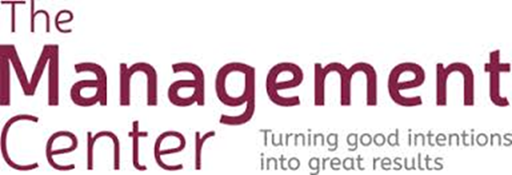
Managing to Change the World Crash Course (August 12-13, 2020). Led by The Management Center. This fast-paced course in the basics of effective management includes time for discussion and practice. You’ll learn how to: delegate tasks effectively, use goals to hand off broad responsibilities, check in with your staff efficiently, hire great people, give feedback and develop your staff, resolve performance problems and manage people out, work more effectively with your own boss by managing up, keep yourself organized and use your time effectively, incorporate an equity lens in applying the management practices and ensure your team gets great results. Space is available. If your organization receives funding from Deaconess and you would like to participate, register here.
Funding Opportunities – Visit our website for an up-to-date list of funding opportunities for 2020. Funding opportunities with approaching deadlines include: Responsive Grants and Leadership Grants. Proposal are due July 31, 2020.
At the Center: Virtual and Open-air Convening Support
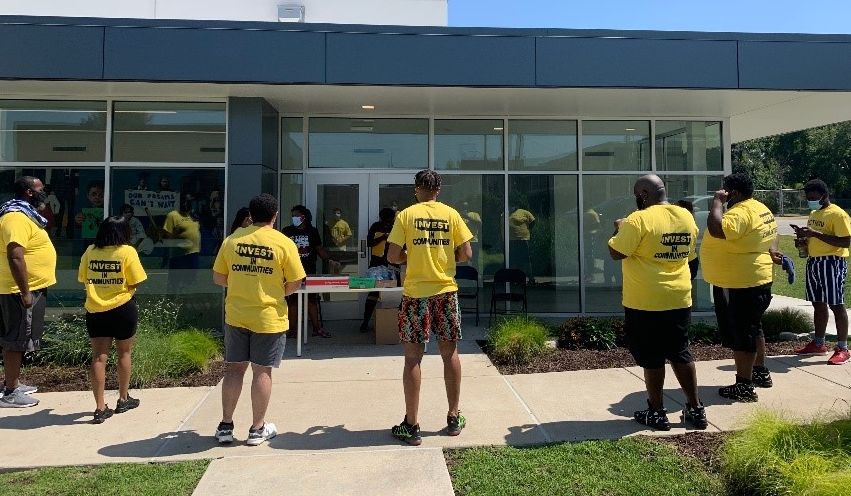
Deaconess Center for Child Well-Being is supportive infrastructure for organizing for public policy change. Recognizing that the work of the Movement would continue during the global pandemic, the Center’s engagement offerings evolved to meet the needs of Deaconess’ partners.
In light of restrictions on public gatherings that have been in place since March, Deaconess Center has continued to offer virtual and on-campus open-air convening spaces to our partners. To-date, the Center has hosted three (3) open-air convenings, giving partners access to the Center’s exterior courtyards and parking lot, and thirty-one (31) virtual convenings.
On Saturdays through the August 4th election, the Center will be the launch site for Action St. Louis’ voter education and canvassing efforts. Canvassers will visit with neighbors throughout the community weekly. Volunteers are welcome.
For more information on virtual convening requests please click here. To learn more about on-campus open-air convening opportunities contact David Nehrt-Flores at davidn@deaconess.org.
In the News
Students and parents campaign to get police out of schools, improve Black Studies curriculum

Sophie Hurtwitz | The St. Louis American
As the Keep Kids in Class Coalition marched in downtown St. Louis on Saturday, they outlined their demands.
They want the removal of all School Resource Officers (SROs) from St. Louis schools, as well as the redirection of more funding towards counseling, anti-racism training, and an institutionalized Black Studies curriculum.
Following the killing of George Floyd by a Minneapolis police officer, the Minneapolis Public Schools board voted to terminate its contract with the Minneapolis Police Department, ending its in-school installation of police officers known as school resources officers, or SRO’s. The Denver, Portland, Oakland, and Seattle school boards did the same. Now, the Keep Kids in Class Coalition is advocating for St. Louis area schools to follow in their footsteps.
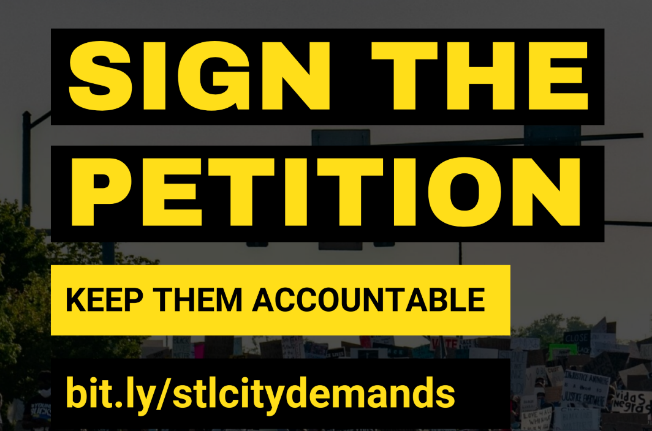 Dozens of Community organizations have new demands for St. Louis Leaders
Dozens of Community organizations have new demands for St. Louis Leaders
Brandon Merano | KSDK
ST. LOUIS — A new group has a list of demands for St. Louis Mayor Krewson and a handful of other city leaders.
The group wants city officials to do five things, to reform police and policies in the St. Louis area.
The St. Louis Organizing Table includes: Action St. Louis, Forward Through Ferguson, Arch City Defenders, Deaconess Foundation, United Congregations for Metro East, Congregation of Sisters of Loretto and Loretto Co-members, Coalition Against Police Crimes and Repression, Organization for Black Struggle, Grassroots Accountability Movement, Missouri Jobs with Justice, Empower Missouri, WEPOWER, Metropolitan Congregations United and The Peace Economy Project.
In an online petition the group has 5 key demands. Read more >>>
What We’re Reading…
Paving the Road to Recovery for Families: Supporting Missouri Child Care Beyond the COVID Crisis | Kids Win Missouri | June 2020
An Event or an Era?: Resources for Social Sector Decision-making in the Context of COVID-19 | Monitor Institute by Deloitte | July 2020
Integrating Individual and Organizational Well-Being by Alana Cookman and Gayle Karen Young Whyte | Stanford Social Innovation Review | July 2020
Partner Opportunities and Events
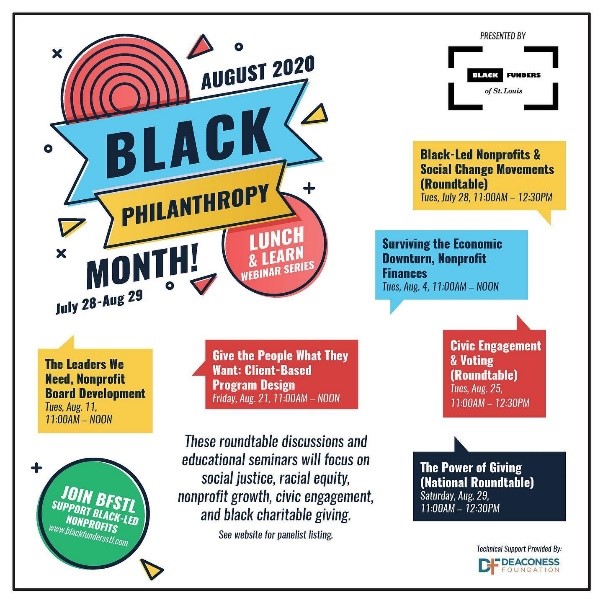 July 25 – August 3: Get Out the Vote Phonebanking and Textbanking, hosted by MOVE Action and Yes on 2. Times vary. To register for Phonebanking, click here. To register for Textbanking, click here.
July 25 – August 3: Get Out the Vote Phonebanking and Textbanking, hosted by MOVE Action and Yes on 2. Times vary. To register for Phonebanking, click here. To register for Textbanking, click here.
July 27: Community Healers Focus Groups, hosted by Forward Through Ferguson, 10 AM – 12 PM. Get Involved or fill out the Community Healer Survey to get an RSVP link.
July 27: Community Organizers Focus Groups, hosted by Forward Through Ferguson, 6-7:30 PM. Virtual. Get Involved or fill out the Community Organizer Survey to get an RSVP link.
Each Tuesday: Metropolitan Congregations United hosts Free Our Youth participatory defense virtual meetings. RSVP and learn more.
July 31: Due date for applications for Action St. Louis’ Black Organizing Summer School (BOSS) Cohort. Learn more and apply here.
August is Black Philanthropy Month. Join Black Funders of St. Louis for a series of webinars, learning opportunities and events to celebrate. Register here.
August 21: Interactive Panel Discussion on Racial Healing and on the Opportunity to Thrive and Racial Equity Priorities of the Ferguson Commission Report, hosted by Forward Through Ferguson, 6:30 – 7:30 PM. Register here.
In case you missed it: How Change Happens
Watch: Just for Kids Community Conversation: How Change Happens with Leslie Crutchfield, Part IV
